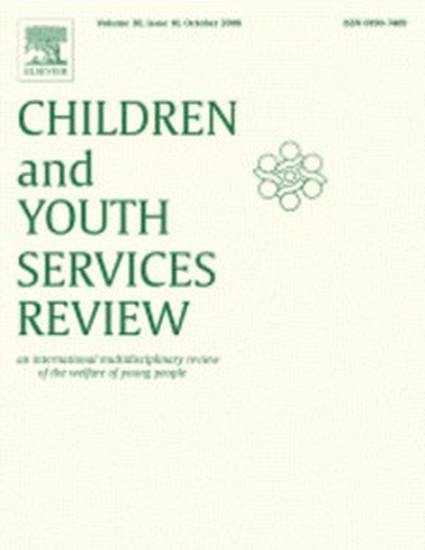
Article
Disentangling over-representation of parents with disabilities in the child welfare system: Exploring child maltreatment risk factors of parents with disabilities
Children and Youth Services Review
(2014)
Abstract
The study explores the risk factors for child maltreatment and self-reported child maltreatment among a population-based sample of parents with disabilities. Drawing on a nationally-representative, population-based data file that oversampled people of color, income-adjusted odds ratio tests were conducted to establish population differences among parents with and without limitations in activities of daily living (ADLs). Results suggest that parents with disabilities were more likely to report many of the risk factors associated with child maltreatment than parents without disabilities, including witnessing interpersonal violence as a child; experiencing violence, neglect or a foster care stay as a child; mood or substance use disorders; and engaging in or receiving interpersonal violence as an adult. Before controlling for income, parents with disabilities had only a negligibly higher rate of engaging in violence against their children. After controlling for income, parents with disabilities were 2.5 times more likely to engage in violence against their children. Parents with disabilities who did engage in violence against their children had greater amounts of some of the child maltreatment risk factors in comparison to parents with disabilities who did not engage in violence, particularly their own childhood experiences of maltreatment, witnessing of interpersonal violence as a child, childhood stays in foster care, and experiences with interpersonal violence as an adult. Findings add to the understanding of the risk factors for child maltreatment that are related to the collateral effects of having a disability, and through the use of income-adjusted data, help disentangle why parents with disabilities are over-represented in the child welfare system. The findings highlight the need for the child welfare system to increase its disability competence in working with both children and parents with disabilities.
Disciplines
- Psychiatry and
- Psychology
Publication Date
December, 2014
DOI
10.1016/j.childyouth.2014.10.001
Citation Information
Elizabeth Lightfoot and Elspeth Slayter. "Disentangling over-representation of parents with disabilities in the child welfare system: Exploring child maltreatment risk factors of parents with disabilities" Children and Youth Services Review Vol. 47 Iss. 3 (2014) p. 283 - 290 Available at: http://works.bepress.com/elspeth-slayter/4/
